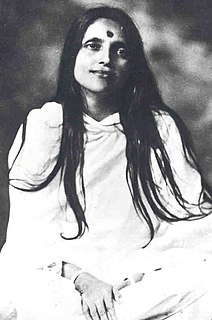A Quote by Jean-Jacques Rousseau
The problem is to find a form of association which will defend and protect with the whole common force the person and goods of each associate, and in which each, while uniting himself with all, may still obey himself alone, and remain as free as before.
Related Quotes
The lives of individuals of the human race form a constant plot, in which every attempt to isolate one piece of living that has a meaning separate from the rest-for example, the meeting of two people, which will become decisive for both-must bear in mind that each of the two brings with himself a texture of events, environments, other people, and that from the meeting, in turn, other stories will be derived which will break off from their common story.
He must be able to hear them [the counter arguments] from persons who actually believe them; who defend them in earnest, and do their very utmost for them. He must know them in their most plausible and persuasive form; he must feel the whole force of the difficulty which the true view of the subject has to encounter and dispose of; else he will never really possess himself of the portion of truth which meets and removes that difficulty.
A happy marriage perhaps represents the ideal of human relationship -- a setting in which each partner, while acknowledging the need of the other, feels free to be what he or she by nature is: a relationship in which instinct as well as intellect can find expression; in which giving and taking are equal; in which each accepts the other, and I confronts Thou.
A man's knowledge may be said to be mature, in other words, when it has reached the most complete state of perfection to which he, as an individual, is capable of bringing it, when an exact correspondence is established between the whole of his abstract ideas and the things he has actually perceived for himself. His will mean that each of his abstract ideas rests, directly or indirectly, upon a basis of observation, which alone endows it with any real value; and also that he is able to place every observation he makes under the right abstract idea which belongs to it.
Happiness lies in being privileged to work hard for long hours in doing whatever you think is worth doing. One man may find happiness in supporting a wife and children. Another may find it in robbing banks. Still another may labor mightily for years in pursuing pure research with no discernible result. Note the individual and subjective nature of each case. No two are alike and there is no reason to expect them to be. Each man or woman must find for himself or herself that occupation in which hard work and long hours make him or her happy.
Since the whole city has one end, it is manifest that education should be one and the same for all, and that it should be public, and not private - not as at present, when every one looks after his own children separately, and gives them separate instruction of the sort which he thinks best; the training in things which are of common interest should be the same for all. Neither must we suppose that any one of the citizens belongs to himself, for they all belong to the state, and are each of them a part of the state, and the care of each part is inseparable from the care of the whole.
A covenant not to defend myself from force by force is always void. For ... no man can transfer or lay down his Right to save himself. For the right men have by Nature to protect themselves, when none else can protect them, can by no Covenant be relinquished. ... [The right] to defend ourselves [is the] summe of the Right of Nature.






































